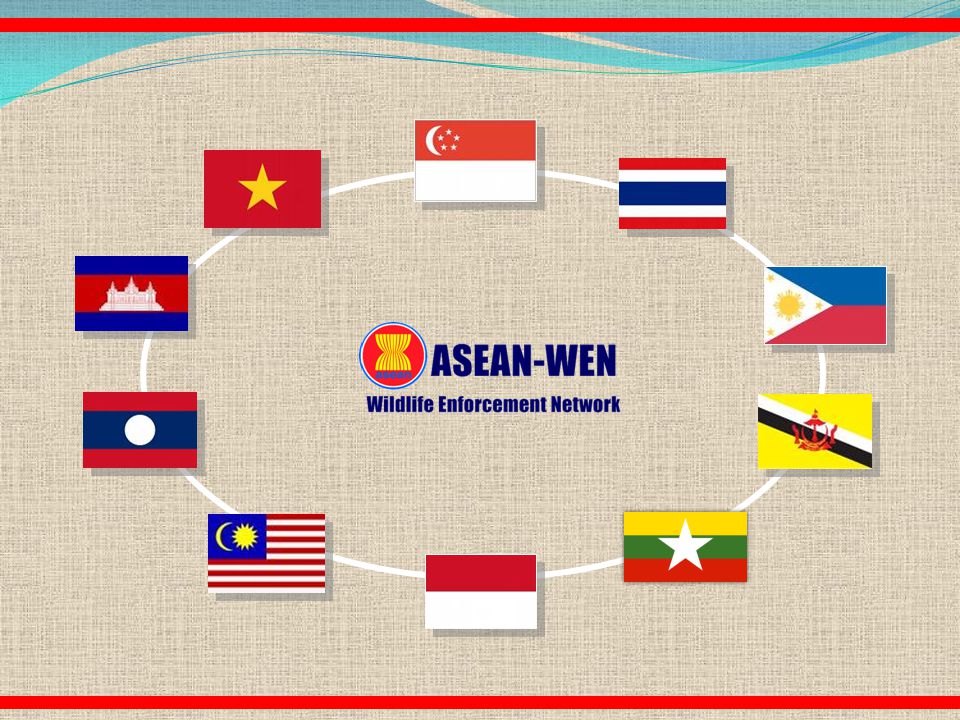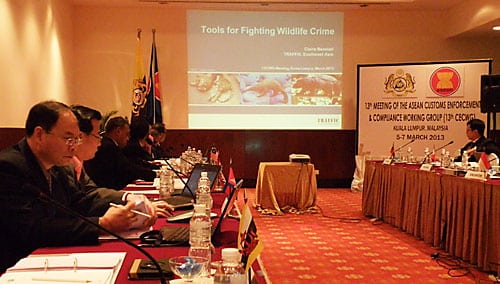
Over the years, people have been forming different organizations to help them advocate for the rights of oppressed people or animals. One of these organizations is the ASEAN Wildlife Enforcement Network, which has been operating since 2005. Different agencies formed the organization from several states to raise their voice against the illegal trade that has been happening across Asia. It involves harvesting different plants, poaching wild animals, and transporting them to different countries.
Ten Asian countries work under this organization, making it one of the largest unions that advocate for the end of the illegal wildlife trade. ASEAN-WEN also collaborates with many organizations passionate about stopping the smuggling of animal body parts and plants in different countries.
One of its objectives is to facilitate conferences where different officials meet to discuss the best measures different countries can take to prevent this vice. During the discussion, each region proposes the best strategies that can combat the crimes between their borders.
The Organization’s History
Asia is one of the continents reporting the highest number of illegal animal and plant parts trade. Therefore, different Asian ministers proposed the formation of an intergovernmental organization that could help stop this crime. Their first agenda was to create a five-year action plan that ran from 2005-2015. The plan gave the ASEAN-WEN the mandate of encouraging networks between law enforcers in different countries to help end this crime across different states.
Taking the Organization to the Next Level through Unmatched Leadership
General Dr. Chanvut took over the leadership of LEEO later after creating the Chief Technical Advisor of Law post. Chanvut headed the association until Dr. Vatanarak, the current LEEO boss succeeded him. Before his appointment, Dr. Vatanarak held different positions, including being a representative in the national assembly. Moreover, he holds several degrees, making him a reliable expert to head the director’s position in the organization that tries to end long-term crimes. The LEEO, a subsidiary of the ASEAN member states, collaborates with like-minded security agencies.

Facilitating the Unique Mission
Criminals who traffic animal parts and plants across Asia work with agents in different countries who act as spies in their states. They take advantage of the transport infrastructure between different countries to transport wildlife where their organized syndicate operates. Unfortunately, environmental agencies and NGOs cannot do much to stop this organized crime.
That is why the ASEAN Wildlife Enforcement Network decided to take up the task of ensuring that this vice ends. The organization’s mission is to ensure that wildlife trafficking ends in all Asian countries as soon as possible. The organization teams with different agencies, including the police and the judiciary, to ensure that every criminal caught trafficking animals are brought to book. The partnership has been successful, and there is a need for different organizations to continue working together in all the countries where animal trafficking is rampant.
ASEAN-WEN has an organization that handles national issues and oversees the activities in the whole region. Different Asian countries have established different units, which have been very helpful in combating wildlife transportation crime. Besides, other countries are in the process of establishing squads and training them on how to identify species, conduct investigations, and how to determine whether criminals have broken the law.
Facing Southeast Asia’s Illegal Wildlife Professionally
The illegal wildlife trade has been going on for years in different Asian countries. Criminals traffic animals out of the continent to different areas around the world. Unfortunately, this vice has caused effects that might take time to reverse. That includes drastically reducing the animal population of the endangered species. Besides, the criminal activities have caused severe environmental problems that have affected people’s lives in Southeast Asia and surrounding areas.
Wildlife trade is one of the significant illegal businesses in the area, and it is almost as large as the arms and drugs smuggling crimes. If not stopped, this crime of harvesting natural resources will finish particular plants and animals in Asia in the next few years.
Southeast Asia is also home to some of the most threatened species. Out of the countries that register many wildlife trafficking cases, almost half of them are in Asia. That is despite the efforts to stop this vice by different organizations. However, there is hope that the crime might end because more organizations have started advocating for the protection of south Asian threatened species.
Besides, law enforcers have heightened their efforts to stop the vice in the continent. That has enabled them to recover thousands of living and dead wildlife and different animal parts in the last few years. The law enforcers have also arrested many criminals and presented them in court for trial.
Challenges While Saving the Asian Endangered Species
Lack of strict laws is among the primary challenges faced by ASEAN-WEN in executing the delicate mission. Unfortunately, even after law enforcers present criminals in court, some judges only jail them for a few years or fine them a small amount of money. As a result, criminals continue trafficking wildlife without worrying about the consequences they could face if the law enforcers caught them trafficking animals or their parts.
However, after discovering that the current laws are not severe enough, ASEAN-WEN started working with policymakers to present amendments to ensure that every criminal gets heavy fines, lengthy jail terms, or both of them. Besides, the organization holds different seminars that bring together different Asian Countries to discourage criminals from continuing with the illegal trade.
The Organization’s Commendable Success over the Years
Since ASEAN-WEN started operating, many countries have realized the importance of working together to stop illegal wildlife trade in Southeast Asia. Besides, their regular training has helped educate the community on the measures to take whenever they notice wildlife criminal activities.
When ASEAN-WEN has been fighting wildlife crime, they have helped rescue more than 50,000 live animals in different counties. The organization and law enforcers have also rescued over 40,000 dead animals that poachers could have transported to different countries. They have also managed to arrest more than 200 people amongst the illegal syndicate operating in Asia and other continents.





